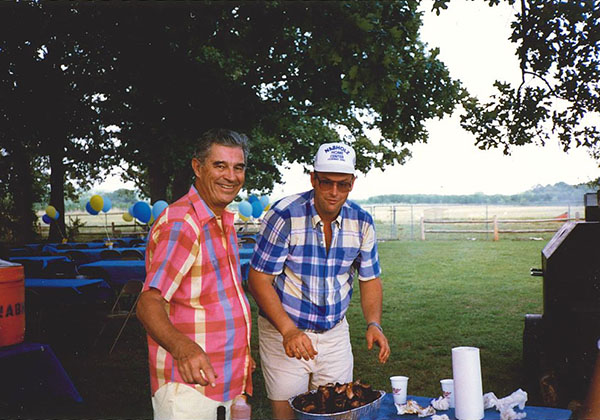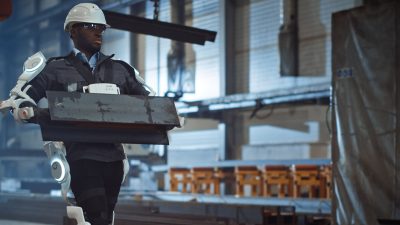I grew up in the construction industry – which makes sense considering Bob Nabholz was my father. I started working summers as a laborer at the age of 15 and, as I got older, began working on large-scale concrete projects—big concrete walls, elevated two-way slabs, and high-rise, poured-in-place structures that became hotels, state police headquarters, and paper mills. For a while, my whole life became about how big, how fast, and how tall concrete could be formed, poured, and finished. And I loved it.

We used all types of giant equipment, including big track and tower cranes. We used gang forms and flying forms, and 2.5 cubic yard concrete buckets to make 200-yard pours 200 feet in the air. I remember clearly one of the first times I ever got to use a concrete pump. We formed and poured an elevated parking deck structure, making an 800-cubic-yard pour in a record nine hours. In fact, I could tell you the average yards per hour placed for every concrete pour I ever made.
One afternoon I was proudly telling my dad all about the big pours we had made in the past week, and he said something that surprised me. “Son, construction is a people business.” That was it – the wise words of my father. It threw me for a loop because I knew he was wrong. Construction was all about form systems, foundations, structures—it was about building bigger, faster, and higher than anyone else. How could my father, the founder of the company I grew up in, get that so wrong?

Slowly over the next weeks, years, and now, a lifetime, I have come to understand the truth of his statement. Not only how true it is, but how that belief—“construction is a people business”—is the foundation of the company that he started. In fact, I have to believe that it was through watching the other early employees of Nabholz, those that didn’t share our last name but still poured sweat and blood into establishing Nabholz as a choice builder, that made him realize that without quality people, we’d be nothing. People build. And good people build with quality, build safely, build relationships, build trust, build integrity, and build for a lifetime. They build on the success of the past and then hand the reins over to more good people to build the success of the future.
The company that my father built is a company of people, good people, who have seen his company grow beyond anything he ever envisioned.
My father died April 14, 2002 – now 17 years ago. He made very few speeches. Instead, he “taught” his lessons by example, by how he lived and most importantly, how he treated people.
Happy Father’s Day, Dad.
I love you,
David

